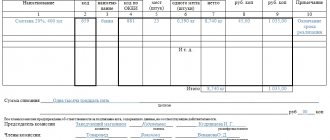What is mentoring? Organization of a mentoring system Timing of mentoring activities Who can act as a mentor? What functions should be assigned to the mentor? Should the mentor be paid additional compensation?
Training young personnel is a labor-intensive task, but undoubtedly effective. After all, the faster an employee understands and adapts, the sooner he will begin to benefit the company. You can, of course, give the new employee printed instructions and say: “Learn it yourself, brother.” And then wait a long time until he gets into the swing of things. Or you can assign an experienced specialist to the newcomer, who will transfer his own knowledge and skills directly during the work process. This is the essence of mentoring. Labor market experts spoke about how this method of training can be useful for an enterprise and in what cases to use it.
What is it, what do they eat it with?
Mentoring is one of the effective methods of increasing the efficiency of company employees through their development in the workplace and providing assistance in resolving any work issues. This method is also used to reveal the potential of a new employee and its further implementation in.
An important point is that the mentor is not a direct supervisor. If a manager is obliged by duty to ensure that new employees of his department organically integrate into the work process, then this is not included in the job description of the mentor.
Common mistakes
The most typical and common errors are the following:
- underestimation of the degree of discomfort of the conditions in which the mentor’s mentee has to work. This mistake can be avoided by creating a trusting environment and attentive attitude towards the student;
- imposing one's opinion on the student. You can avoid mistakes by asking questions about assessing the results of a particular action, without first expressing your own value judgments. That is, the analysis of the situation must begin with feedback, and not with expressing one’s own opinion;
- overloading the mentee with comments and recommendations on a wide range of issues. You can avoid mistakes if you highlight key issues and focus on them, without overloading the ward with an abundance of heterogeneous information;
- insufficient attention to setting tasks and subsequent monitoring of their implementation. You can avoid mistakes by following two rules. Tasks for the mentee should be formulated according to SMART, that is, they should be (S) specific, (M) measurable, (A) achievable, (R) relevant or relevant to the activity, (T) with a clear time frame. Control should be systematic and not carried out in the form of random checks. Based on its results, it is necessary to analyze the situation with the ward and, if necessary, adjust the initial tasks in accordance with the changing situation.
So who is a mentor?
This is an experienced employee who takes the newcomer under his wing and helps him adapt to work in the company. The mentor is responsible for planning and organizing an effective professional development program for his mentee.
Who can be a mentor?
Not every company employee can serve as a mentor. Experienced assistants are employees who:
- In the process of work, they are guided by corporate priorities;
- Has teaching abilities;
- Are ready to take personal responsibility for the mistakes of the mentee;
- Able to motivate others;
- They have influence and trust in the team.
“Among the main responsibilities of a mentor are counseling a young specialist, determining the direction of his career growth, drawing up a professional development plan, monitoring the implementation of assigned tasks, adjusting the plan, conducting additional training events, helping in the application of knowledge acquired outside of work, demonstrating a positive role model.” , the expert adds.
It is impossible to force one or another employee to officially become a teacher for a newbie. Mentoring is entirely voluntary. The benefits of this method for young employees are clear, but why should experienced employees waste time and effort on newcomers? It's all about motivation. It also includes remuneration (in the form of a small increase in salary), but still rests more firmly on the intangible part - obtaining additional knowledge (mentors attend courses and trainings to improve their skills), attention and approval from the management echelon, various insignia that raise authority in the workplace. in the eyes of the team, and so on.
“Mentoring allows you to increase the motivation and professional level of the mentor himself, acquire new skills, and also get the opportunity to move further up the career ladder.”
Terms of mentoring activities
The mentoring period is set depending on the need and the specific organization of activities at a particular enterprise. As a rule, it is several months. Thus, new employees are often required to serve a probationary period, which is often 3 months. And during all these three months, the mentor appointed by the management of the enterprise will have to fulfill the duties assigned to him.
Legal aspects of mentoring
The current labor legislation practically does not regulate the institution of mentoring. Among the regulatory legal acts, there are only a few provisions regulating mentoring in a number of so-called law enforcement agencies (in particular, internal affairs bodies, authorities for control of the circulation of narcotic drugs and psychotropic substances, the investigative committee at the Prosecutor's Office of the Russian Federation, etc.). These provisions indicate the tasks and procedure for organizing mentoring in the relevant bodies and departments.
In addition, mention of mentoring is found in some other regulatory legal acts. For example, such a mention is in the Recommendations for the use of a new system of remuneration for teachers of additional education, aimed at improving the quality of work of management and teaching staff of the system of additional education for children (letter of the Ministry of Education and Science of Russia dated March 25, 2009 No. 06-296), but the organization of mentoring is detailed in the document not revealed. Also, the possibility of establishing mentoring is mentioned in some industry agreements (examples of industries: electric power industry, housing and communal services).
Thus, if mentoring has not previously been used in an organization, it is necessary to study industry-specific regulatory legal documents, and then develop and consolidate the procedure for conducting mentoring in a local regulatory act - the Regulations on Mentoring.
For an employee who trains other employees, mentoring in accordance with Article 60.2 of the Labor Code of the Russian Federation is additional work, if this issue has not been regulated separately in the employment contract with this employee. The content and volume of additional work are established by the employer with the written consent of the employee, and for its implementation, in accordance with Article 151 of the Labor Code of the Russian Federation, the employee is entitled to an additional payment in the amount approved by agreement of the parties to the employment contract. In the case of a budgetary organization, the amount of the surcharge is established by a higher-level organization and is enshrined in local regulations.
It is important to remember that if the employee’s employment contract did not provide for the performance of mentoring functions, and the employee did not consent to training other employees, then the employer does not have the right to require him to perform these functions.
The appointment of an employee as a mentor to another employee must be properly documented. As discussed above, the employee is first required to obtain permission to perform mentoring functions. Then it is necessary to issue an order to the organization, which reflects the fact that the employee has been appointed as a mentor to another employee, sets the mentoring period and determines the amount of additional payment for mentoring.
The approximate content of a mentoring order could be as follows:
Order (No., date)
About assigning a mentor
In accordance with the Regulations on mentoring in (name of organization)
I order:
- 1. Appoint (position, full name of the mentor) as a mentor (position, full name of the student) for the period from (date) to (date) inclusive.
- 2. Establish (position, full name of the mentor) a salary increase in the amount of (amount) for the period specified in clause 1 of this Order
Manager (signature, full name of the manager)
I have read the order:
(signature, full name of mentor, date)
(signature, full name of the student, date)
>Regulations on the organization of mentoring
I approve
| M.P. |
When to use?
Launching and maintaining the Mentoring project requires the expenditure of both financial and human resources. The need to implement this method is advisable in the following cases.
— If the team consists mainly of young specialists.
“The use of mentoring techniques as a special form of staff training is most relevant in companies where the team consists of young employees. Such a specialist, having arrived at his first job in a certain segment, does not yet have the necessary professional experience, so the mentor should become the person who can convey to him the entire set of knowledge and skills he has, helping him adapt to the professional environment. That is why, for the most effective cooperation between experienced employees and young ones, it is necessary to build a clear and streamlined system for organizing internship programs.”
— If there is a high staff turnover.
Hooray! It's working!
The specifics of organizing mentoring are individual for each company. The management of the enterprise independently decides how exactly to motivate mentors, determines the duration of training for newcomers, sets the project budget, and so on.
But for the most part, the implementation of mentoring comes down to three global stages: selection, training of mentors and evaluation of their work.
“We organized mentoring according to the following scheme:
- development of a project plan and procedures, budget formation, analysis of the experience of colleagues from subsidiary banks of the RBI group, adaptation of the necessary materials;
- selecting a pool of mentors and conducting their training, drawing up individual work plans;
- selection of pilot cities/bank branches;
- Conducting fresh-up trainings (sales and quality of service) for retail employees;
- the presence of mentors in pilot bank branches, monitoring the work of employees, feedback on the results of work, training in the elements of mentoring for branch directors (the pilot lasted five weeks, then we monitored the process);
- analysis of the pilot results, evaluation of mentors and trainees, adjustment of the mentoring system implementation plan.
In our regional centers, to implement the mentoring system, we:
- determined the profile of the mentor (compiled an approximate professional and psychological portrait), selected mentors, trained in detail, tested and selected the best;
- trained retail employees (sales and quality) and heads of retail departments (sales, training for trainers and mentoring);
- introduced a mentoring system in a particular department and additionally trained the director of the department;
- constantly monitored the work of mentors and sales results.”
Implementation difficulties
Of course, organizing a mentoring system does not always go perfectly. The main problems that may arise when implementing this process:
- “Wrong choice of mentor pool. For example, we initially misjudged the expected workload and did not profile the mentor.
- Lengthy and expensive training for mentors. These employees must be the best at what they do and must also be proficient in some training techniques.
- Incorrect positioning of the mentoring system. Our employees initially perceived mentors as “overseers.” Motivation, especially among experienced specialists, was declining.”
Shelf life
An approximate list of documentation maintained in institutions, from personnel records to material and technical records, with storage periods, is approved by Order of the Ministry of Culture of Russia dated August 25, 2010 N 558, in which the Regulations on mentoring are not mentioned.
However, the said act stipulates similar documents with similar purposes, which in most cases are kept for no more than five years or only until a new Regulation is issued.
Thus, since the retention period of the Regulations on Mentoring is not regulated by law, the terms can be stipulated in the regulation itself by analogy with documentation of a similar type.
How can an employer verify the authenticity of a sick leave certificate? How to make changes to the business travel regulations? Find out here.




